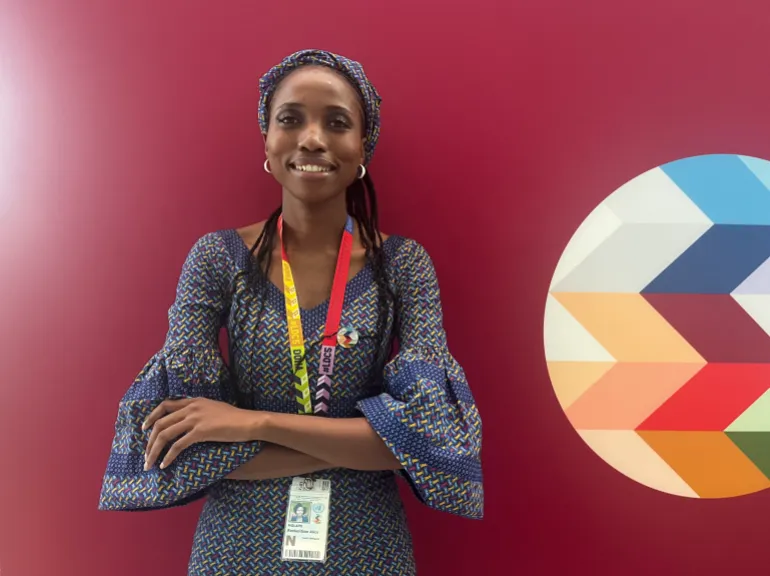
Reekelitsoe Molapo, 28, co-founded Conservation Music Lesotho, an organisation that uses music to advance climate change-related messages among children [Virginia Pietromarchi/Al Jazeera]
Doha, March 14 (RHC)-- Representatives from the world’s poorest nations gathered for a five-day conference to determine how to achieve crucial development goals – from food security to access to clean energy by 2030.
But among the business suits and dry speeches, young delegates emerged to make sure their views were also part of the debate. “All decisions at high levels affect us so it’s important to shape the narrative and make sure our voice is represented well,” Reekelitsoe Molapo told Al Jazeera.
Molapo, 28, from the kingdom of Lesotho in Southern Africa, is one of the 92 young delegates invited to participate at this year’s United Nations Conference on Least Developed Countries (LDCs). There are 46 LDCs and the summit is usually held every 10 years. But because of the coronavirus pandemic, it was postponed twice. This was the fifth such summit but the first where a number of roundtables, forums, and meetings were specifically designed for young participants to empower them in furthering progress.
About 60 percent of the population in the least developed countries are below 25 years of age, according to UN data. The number of those aged 15 to 24 is projected to grow to 336 million by 2050.
The young are the most exposed to poverty and social exclusion, preventing them to access to education and employment opportunities. UN chief Antonio Guterres spoke at the summit’s opening ceremony of “vicious cycles” that prevent poorer countries from boosting economies and improving education.
Yet the young delegates shared their stories of resistance and resilience. “I am not here today to pinpoint how difficult the situation is, but instead to accentuate the courage and audacity of the LDCs,” said Molapo, who was selected for her social engagement in Lesotho.
In 2017, the young activist co-founded Conservation Music Lesotho, an organisation that uses music to advance climate change-related messages among children in her country.
By composing, explaining and producing songs, the group has so far reached more than 5,000 students in the country’s rural areas. Lesotho, completely surrounded by South Africa, has about one-third of its 2.1 million people living on less than $1.90 a day.
“People might not be able to be aware of climate change as a concept so this is a way to make the science much more relatable,” Molapo said.
Climate change is among the topics most resonating at the youth roundtables – and for good reason. People in LDCs are disproportionately affected by the world’s challenges, including global warming which has hit the poorest nations the hardest.
Over the last 50 years, nearly 70 percent of worldwide deaths caused by climate-related disasters were in the LDCs, research shows.
Htay Aung, 21, from Myanmar’s northern Shan state, was five when his parents left him at a Buddhist monastery as they could not afford to pay for his education. He established a group of 15 volunteers, each donating $0.5 per week to help children aged two to 10 who had been left at the monastery.
At 14, he met a foreigner, a tourist travelling by bicycle across the country who taught him a few words of English. That was a window to the outside world and a life trigger, he said. After that, he approached any tourists passing through to learn English, including an Israeli couple who were so impressed by his determination that they helped him apply to a school in Israel.
Htay Aung has lived for the past three years in Tel Aviv, where he started a programme to teach English online to children in Myanmar. During the Conference on LDCs, he expanded his network by bonding with delegates from Nepal to Somalia on how to broaden each other’s projects.
“It’s very important for us to be here because we work on the ground, we know what are our issues … The education that we received is so different from those of our elderly,” he said, pointing to the importance of access to the internet and social media.
Along with climate change, digital inclusion was another topic of great concern among the young delegates. In the least developed countries, about two-thirds of the population remain offline because of a lack of infrastructure, affordability, and skills.
A study by the International Telecommunication Union said the gap between LDCs and the rest of the world of people using the internet has increased from 27 percentage points in 2011 to 30 percentage points in 2022.

